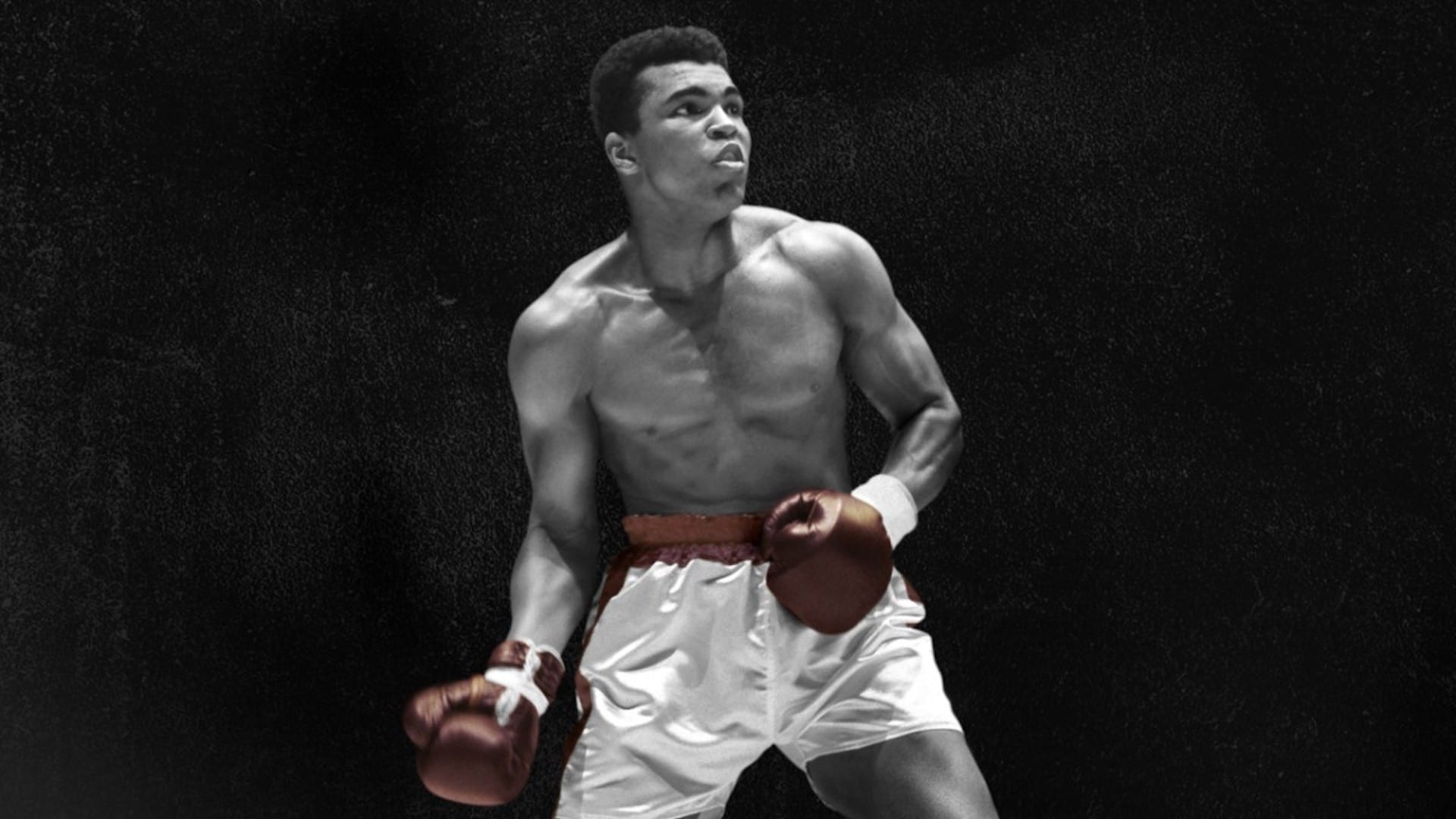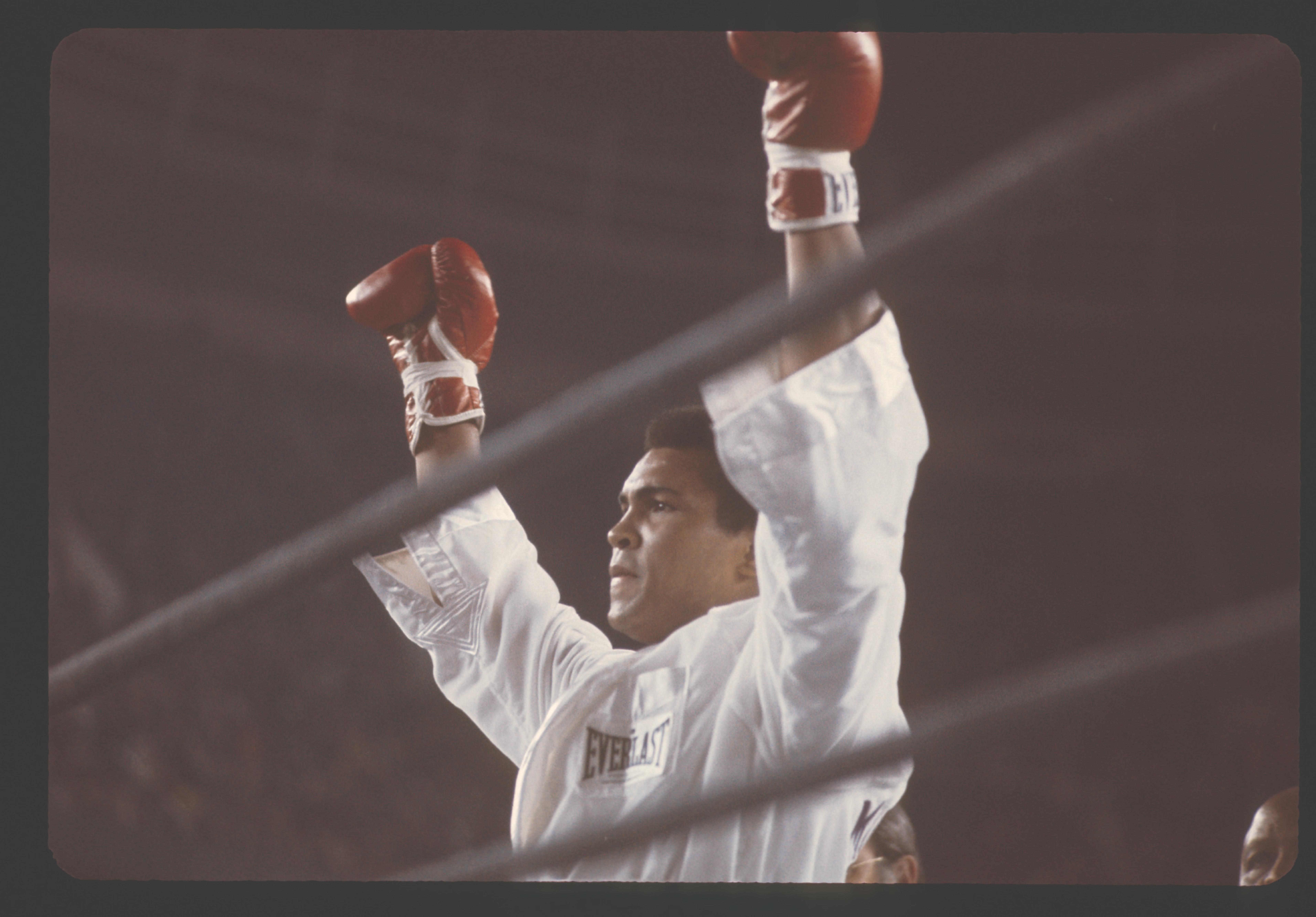
Muhammad Ali put the power of intention front and center decades before the phrase became in vogue. “I am the greatest,” he told us all, over and over again…and so he was.
What’s My Name: Muhammad Ali—a two-part documentary debuting May 14 on HBO—tells his story in those words and so many more, using archival interview footage, spanning back to his 1960 Olympics win in Rome up to his 1996 lighting of the Olympic flame in Atlanta and beyond.
Directed by Antoine Fuqua (Training Day, The Equalizer) and executive produced by LeBron James, the doc uses its 165 minutes wisely in examining exactly how Ali shook up the world.
Every exploration of Ali’s life has to contend with all the societal details that help make his story extraordinary. The 2014 documentary I Am Ali (told in Ali’s own words, as Fuqua does here) also guided viewers through the specifics of young Louisville, Kentucky boxer Cassius Clay’s friendship with Malcolm X and his conversion to the controversial Nation of Islam; his refusal to obey the Vietnam War draft; the stripping of his heavyweight champion title; his Supreme Court absolution and return to the ring. When We Were Kings, the Oscar-winning 1996 documentary, focused squarely on his comeback bout against George Foreman in Zaire. Will Smith mined much the same territory in 2001 for his Academy Award-nominated turn in the biopic Ali.
What separates What’s My Name is its unflinching look at Ali’s ups and downs. Every bit as much of an incredibly handsome Black shining prince as Malcolm X, Ali is such an iconic hero that many aren’t aware of less flattering aspects of his boxing career. (What’s My Name steers clear of his personal life; Ali’s four wives and nine children are never mentioned.)
Even champions suffer losses, and the telling of Ali’s full story has a welcoming humanizing effect.
Fuqua zeroes in on when boxer Ken Norton broke Ali’s jaw in 1973, winning his championship title, as well as other defeats at the hands of Joe Frazier, Leon Spinks, Larry Holmes and, finally, Trevor Berbick. Even champions suffer losses, and the telling of Ali’s full story has a welcoming humanizing effect.
Told chronologically, the narrative of Ali’s life speaks volumes about Black history in general, one of the reasons why his biography is so fascinating. A series of Golden Glove fights led a then-Clay to win the light heavyweight gold medal at the 1960 summer Olympics in Italy, but when he returned home, a local Kentucky diner refused him service because he was a Black man in the segregated South. His joining the Nation of Islam in the early ’60s and adopting the name “Muhammad Ali” coincided with the political unrest of Black America.

Ali’s famous Rumble in the Jungle match in Kinshasa, Zaire highlights the pan-Africanism in the air of the 1970s Black community. Pick almost any point in Ali’s life story and it’s possible to zoom out for an overview of Black history on a whole.
Debuting days ago at the Tribeca Film Festival, What’s My Name ends with material of Ali on The Arsenio Hall Show and 60 Minutes discussing the final fight of his career: his battle with Parkinson’s disease. Even with his nervous system failing him, Ali still schooled the world by living life with grace.
Like he was in perfect health, Ali embraced humanitarianism and philanthropy as every bit of the role model the world made him out to be. With an autobiographical angle focused mainly on his career highs and lows, What’s My Name: Muhammad Ali is a must-see addition to the canon of films devoted to the Greatest of All Time.